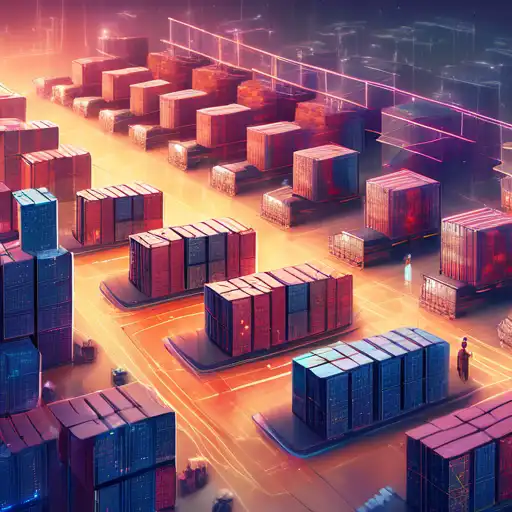The Transformative Power of Blockchain in Modern Supply Chains
In the digital age, blockchain technology is emerging as a revolutionary force in transforming supply chains across industries. By offering unparalleled transparency, security, and efficiency, blockchain is setting new standards for how goods are tracked and transactions are recorded. This article delves into the myriad ways blockchain is reshaping supply chains, ensuring businesses can meet the demands of the 21st century.
Understanding Blockchain in Supply Chains
At its core, blockchain is a distributed ledger technology that allows data to be stored globally on thousands of servers. This makes it nearly impossible for any single entity to gain control of the network or tamper with the data. In the context of supply chains, this technology provides a transparent and immutable record of every transaction or movement of goods, from production to delivery.
Key Benefits of Blockchain for Supply Chains
- Enhanced Transparency: Every participant in the supply chain can access the same information, reducing communication errors and delays.
- Improved Security: Blockchain's decentralized nature makes it highly resistant to fraud and cyberattacks.
- Increased Efficiency: Smart contracts automate transactions and processes, reducing the need for manual intervention and speeding up operations.
- Better Traceability: Products can be tracked from origin to consumer, ensuring authenticity and compliance with regulations.
Real-World Applications
Several industries are already leveraging blockchain to enhance their supply chains. For example, in the food industry, blockchain is used to trace the origin of products, ensuring food safety and reducing waste. In manufacturing, it helps in verifying the authenticity of parts and reducing counterfeit goods. The pharmaceutical sector uses blockchain to track drugs from production to patient, combating the issue of fake medications.
Challenges and Considerations
Despite its potential, the adoption of blockchain in supply chains is not without challenges. Issues such as scalability, interoperability, and the need for standardization across industries must be addressed. Additionally, businesses must consider the environmental impact of blockchain technologies, particularly those that require significant energy consumption.
The Future of Blockchain in Supply Chains
As technology continues to evolve, the integration of blockchain in supply chains is expected to grow. Innovations such as IoT (Internet of Things) and AI (Artificial Intelligence) are likely to complement blockchain, further enhancing its capabilities. The future promises more resilient, efficient, and transparent supply chains, thanks to the ongoing advancements in blockchain technology.
For businesses looking to stay ahead in the competitive market, embracing blockchain technology is no longer an option but a necessity. By understanding and implementing blockchain solutions, companies can achieve unprecedented levels of efficiency, security, and customer trust.
Explore more about digital transformation and how it's changing the business landscape.
